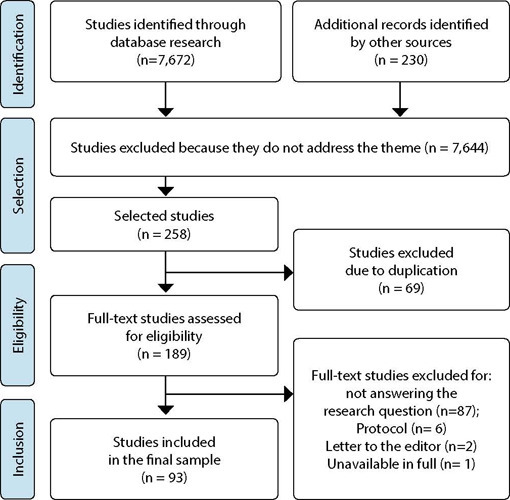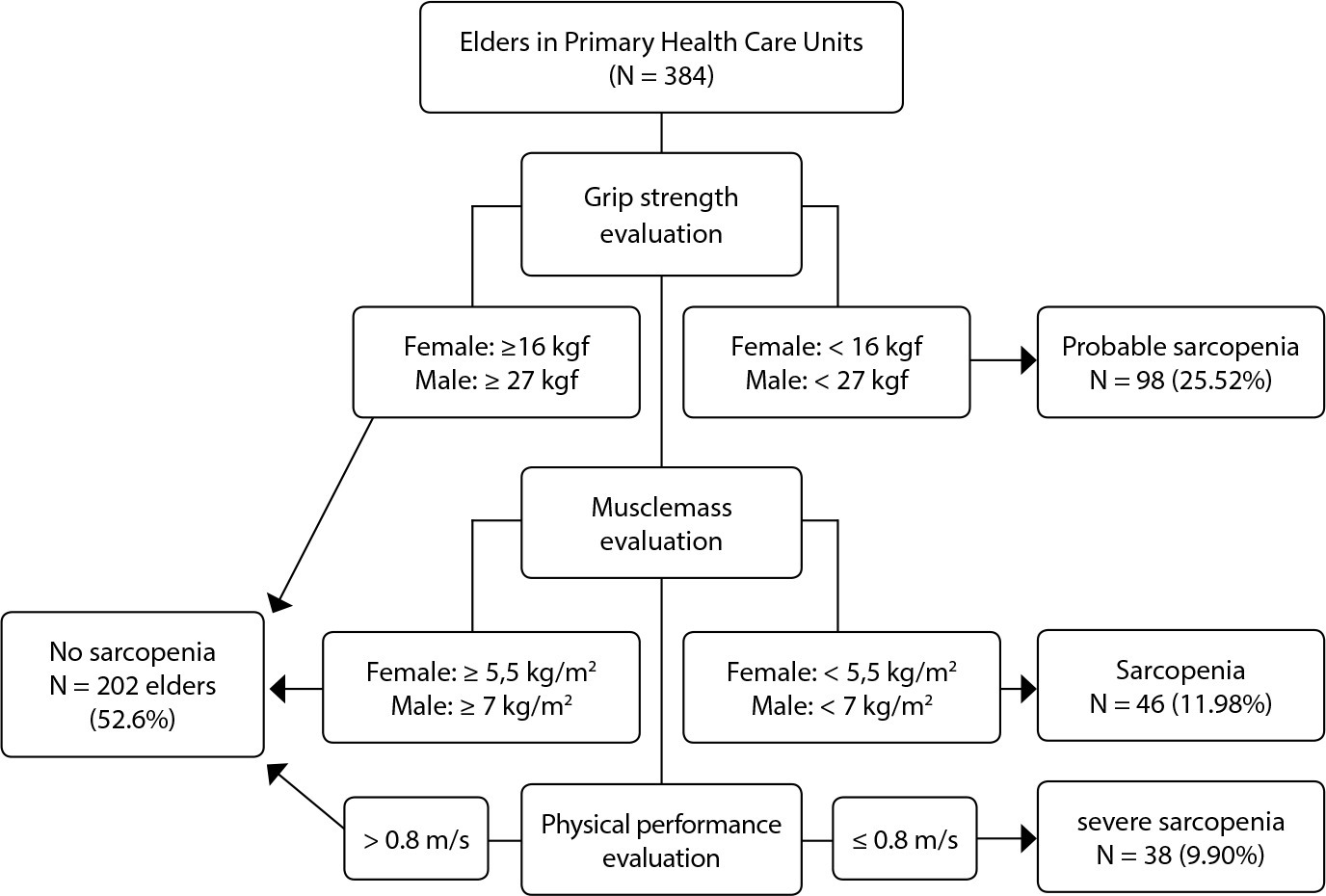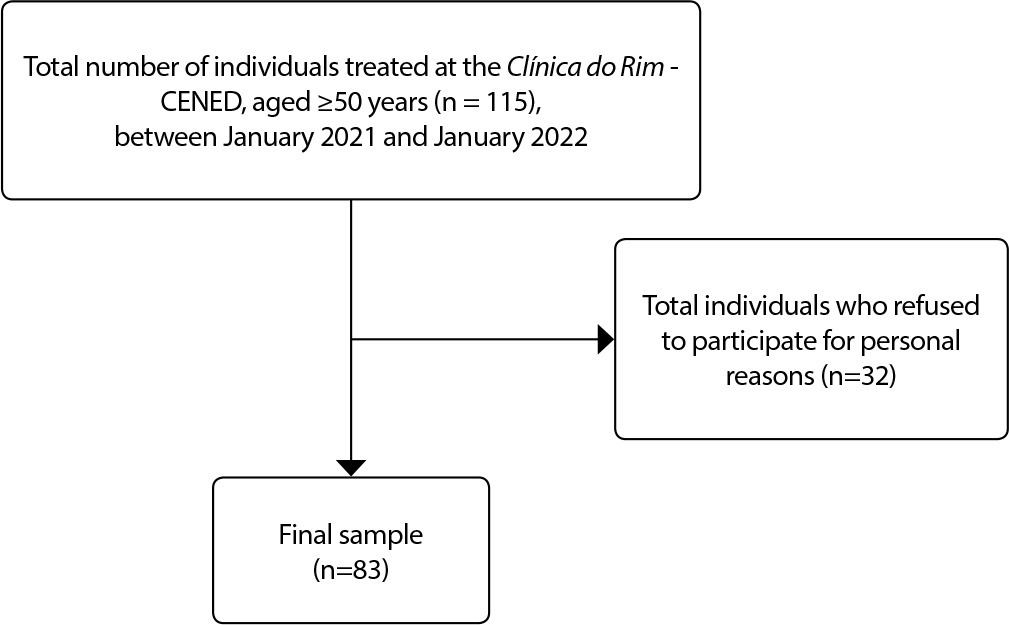-
RESEARCH01-01-2018
Deontological aspects of the nursing profession: understanding the code of ethics
Revista Brasileira de Enfermagem. 2018;71(1):3-10
Abstract
RESEARCHDeontological aspects of the nursing profession: understanding the code of ethics
Revista Brasileira de Enfermagem. 2018;71(1):3-10
DOI 10.1590/0034-7167-2016-0565
Views0See moreABSTRACT
Objective:
to investigate nursing professionals’ understanding concerning the Code of Ethics; to assess the relevance of the Code of Ethics of the nursing profession and its use in practice; to identify how problem-solving is performed when facing ethical dilemmas in professional practice.
Method:
exploratory descriptive study, conducted with 34 (thirty-four) nursing professionals from a teaching hospital in João Pessoa, PB – Brazil.
Results:
four thematic categories emerged: conception of professional ethics in nursing practice; interpretations of ethics in the practice of care; use of the Code of Ethics in the professional practice; strategies for solving ethical issues in the professional practice.
Final considerations:
some of the nursing professionals comprehend the meaning coherently; others have a limited comprehension, based on jargon. Therefore, a deeper understanding of the text contained in this code is necessary so that it can be applied into practice, aiming to provide a quality care that is, above all, ethical and legal.
-
01-01-2018
It is not a crisis itself, if does not promote changes
Revista Brasileira de Enfermagem. 2018;71(1):1-2
Abstract
It is not a crisis itself, if does not promote changes
Revista Brasileira de Enfermagem. 2018;71(1):1-2
DOI 10.1590/0034-7167.2018710101
Views1ECONOMIC CRISISBrazil has been going through crisis in the past three years, due to often and systemic cuts in funds in multiple fields of society, such as education, health, science and technology, affecting directly on Brazilian scientific production. The nursing scientific production – as being an integrative part – now experiences a phase of quantitative […]See more -
01-01-2018
Uma crise que não gera mudanças não é uma crise em sua essência
Revista Brasileira de Enfermagem. 2018;71(1):1-2
Abstract
Uma crise que não gera mudanças não é uma crise em sua essência
Revista Brasileira de Enfermagem. 2018;71(1):1-2
DOI 10.1590/0034-7167.2018710101
Views0A CRISE ECONÔMICAAs dificuldades político-econômicas que o Brasil atravessa nos últimos três anos, com cortes frequentes e sistemáticos de recursos nas mais diversas áreas, incluindo educação, saúde, ciência e tecnologia, repercutem diretamente na produção científica brasileira. Como parte integrante desse sistema, a produção científica da enfermagem passa a experimentar uma fase de declínio quantitativo na […]See more -
REFLECTION01-01-2018
Nursing and light technologies for a peace culture within the family
Revista Brasileira de Enfermagem. 2018;71:2854-2857
Abstract
REFLECTIONNursing and light technologies for a peace culture within the family
Revista Brasileira de Enfermagem. 2018;71:2854-2857
DOI 10.1590/0034-7167-2017-0756
Views0See moreABSTRACT
Objective:
To reflect on technologies for the peace culture that can be used in family nursing.
Method:
Theoretical essay, based on the premises of non-violence and peace culture.
Results:
Four light technologies are singled out for the peace culture within families: nonviolent communication, qualified listening, conflict mediation, and restorative circles.
Conclusion:
The technologies proposed can be used by nurses to promote care and policies aiming at a peace culture and non-violence in families, with the objective of assisting in the obtainment of the well-being for family systems and their correlations.
-
REFLECTION01-01-2018
The face-to-face encounter in indigenous health care: a perspective in Lévinas
Revista Brasileira de Enfermagem. 2018;71:2848-2853
Abstract
REFLECTIONThe face-to-face encounter in indigenous health care: a perspective in Lévinas
Revista Brasileira de Enfermagem. 2018;71:2848-2853
DOI 10.1590/0034-7167-2017-0389
Views0See moreABSTRACT
Objective:
To reflect on the sensitive behaviors of indigenous healthcare professionals based on the philosophy of Emmanuel Lévinas, to ratify completeness, equity, and humanity.
Method:
reflective study.
Reflection:
Studies have identified inadequacies in meeting the indigenous singularities. In the hospital and outpatient settings, they are diluted in the search for care. The difficulty of the professionals to admit them generates conflicts and non-adherence of indigenous individuals to treatments that disregard their care practices. In Lévinas, consciousness requires, “a priori,” sensitivity to access the Infinity on the Face of the Other, which in the face-to-face encounters is presented to the Self as radical Alterity, proposing an Ethical relationship through transcendence. The freedom of the Self as to the Other is finite, as the Self cannot possess the Other, and infinite for its responsibility for the Other.
Final considerations:
The Self builds essence and existence in responsibility. In the Ethics of Alterity, in Lévinas, reflections are proposed that influence sensitive behaviors.
-
EXPERIENCE REPORT01-01-2018
Implementation of the Street Outreach Office in the perspective of health care
Revista Brasileira de Enfermagem. 2018;71:2843-2847
Abstract
EXPERIENCE REPORTImplementation of the Street Outreach Office in the perspective of health care
Revista Brasileira de Enfermagem. 2018;71:2843-2847
DOI 10.1590/0034-7167-2017-0616
Views0See moreABSTRACT
Objective:
To report the experience of implementation of a clinical equipment of health care production to homeless people, denominated Street Outreach Office.
Method:
Experience report in the city of Rio de Janeiro, Brazil.
Results:
The Street Outreach Office implementation resulted from a demand for health care practices for homeless people. This implementation had intersectoral articulations, causing health professionals to carry out street care practices, which led them to strive for public policies, to rethink their actions in order to increase the resolution of care to this population.
Conclusion:
We should emphasize the importance of health professionals to reinvent their practices, daily, seeking partnerships and acquisition of new knowledge in order to achieve results that can reduce the demands of these individuals throughout their life routes.
-
EXPERIENCE REPORT01-01-2018
Developing a nursing healthcare protocol: a case report
Revista Brasileira de Enfermagem. 2018;71:2837-2842
Abstract
EXPERIENCE REPORTDeveloping a nursing healthcare protocol: a case report
Revista Brasileira de Enfermagem. 2018;71:2837-2842
DOI 10.1590/0034-7167-2017-0846
Views0See moreABSTRACT
Objective:
to report the use experience of convergent healthcare research for developing a nursing care protocol.
Method:
convergent care research developed in university hospital, from July to December 2016, with 27 participants.
Results:
the stages of the research and its results are described in the steps: conception, instrumentation, screening and analysis. The end result was the nursing care protocol in day zero of hematopoietic stem cell transplantation.
Conclusion:
convergent care research was an appropriate method for developing the care protocol, and an important contribution to the approximation between theory and practice. The nursing care protocol was the result of this study and confirmed both the purpose of the research as a professional Master’s in acquiring knowledge aimed at improving professional practice.
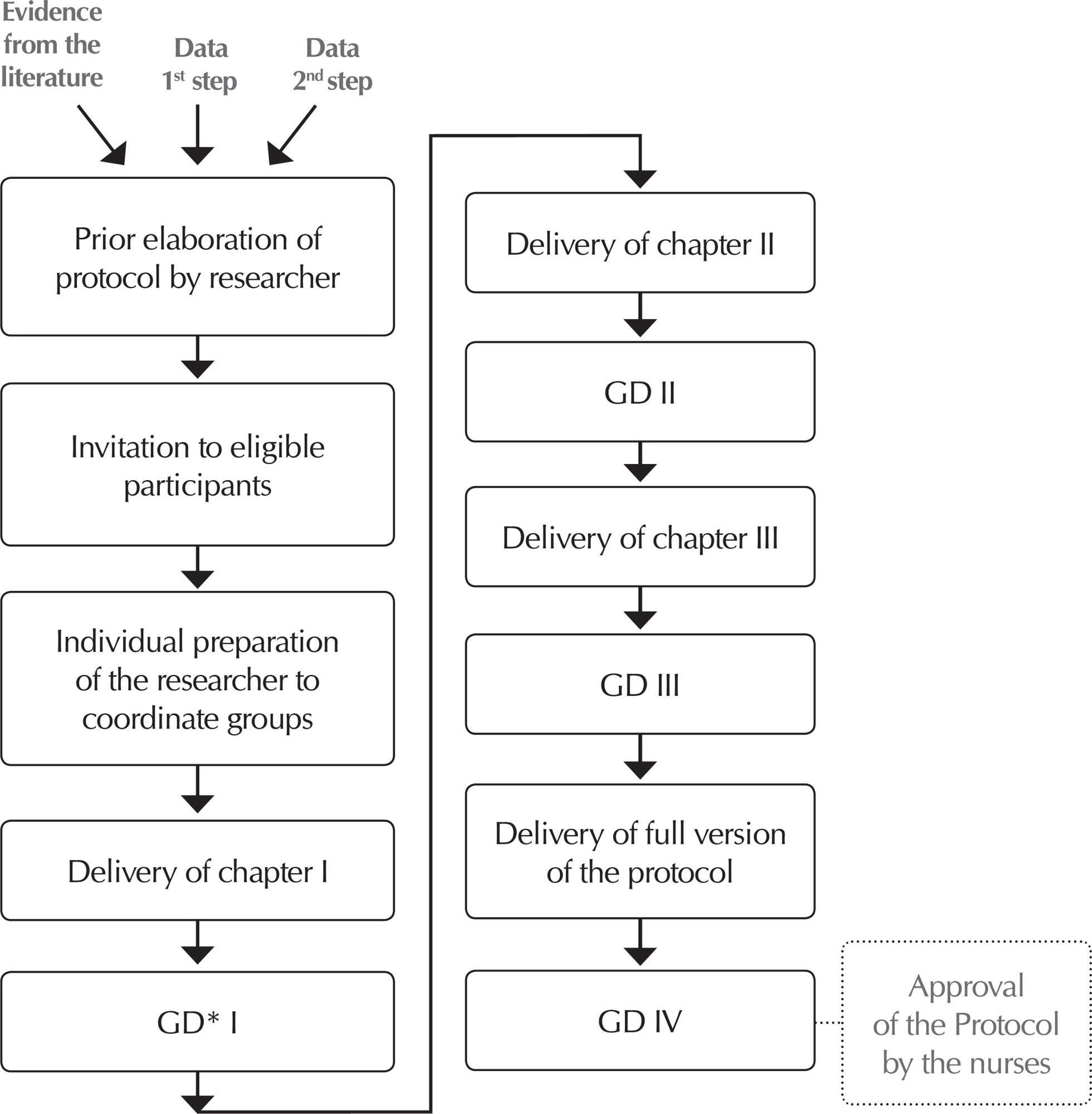
-
EXPERIENCE REPORT01-01-2018
Safe Embrace: technological innovation for elderly safety in the use of toilets
Revista Brasileira de Enfermagem. 2018;71:2833-2836
Abstract
EXPERIENCE REPORTSafe Embrace: technological innovation for elderly safety in the use of toilets
Revista Brasileira de Enfermagem. 2018;71:2833-2836
DOI 10.1590/0034-7167-2017-0751
Views0See moreABSTRACT
Objective:
to describe the development of a device to prevent falling for seniors when using the toilet.
Method:
we sought in literature and in the hospital market for a device to prevent falling, without success. Geriatric nurses, in partnership with the hospital engineering team, elaborated a prototype and, after several analysis, looked for a partner for its production.
Results:
the device, named “Safe Embrace”, installed and tested in an apartment of the Geriatric ward, was positively evaluated by the health team, patients and caregivers.
Conclusion:
for the benefit obtained and considering the safety and privacy during use, Safe Embrace was patented so that other institutions could use it.
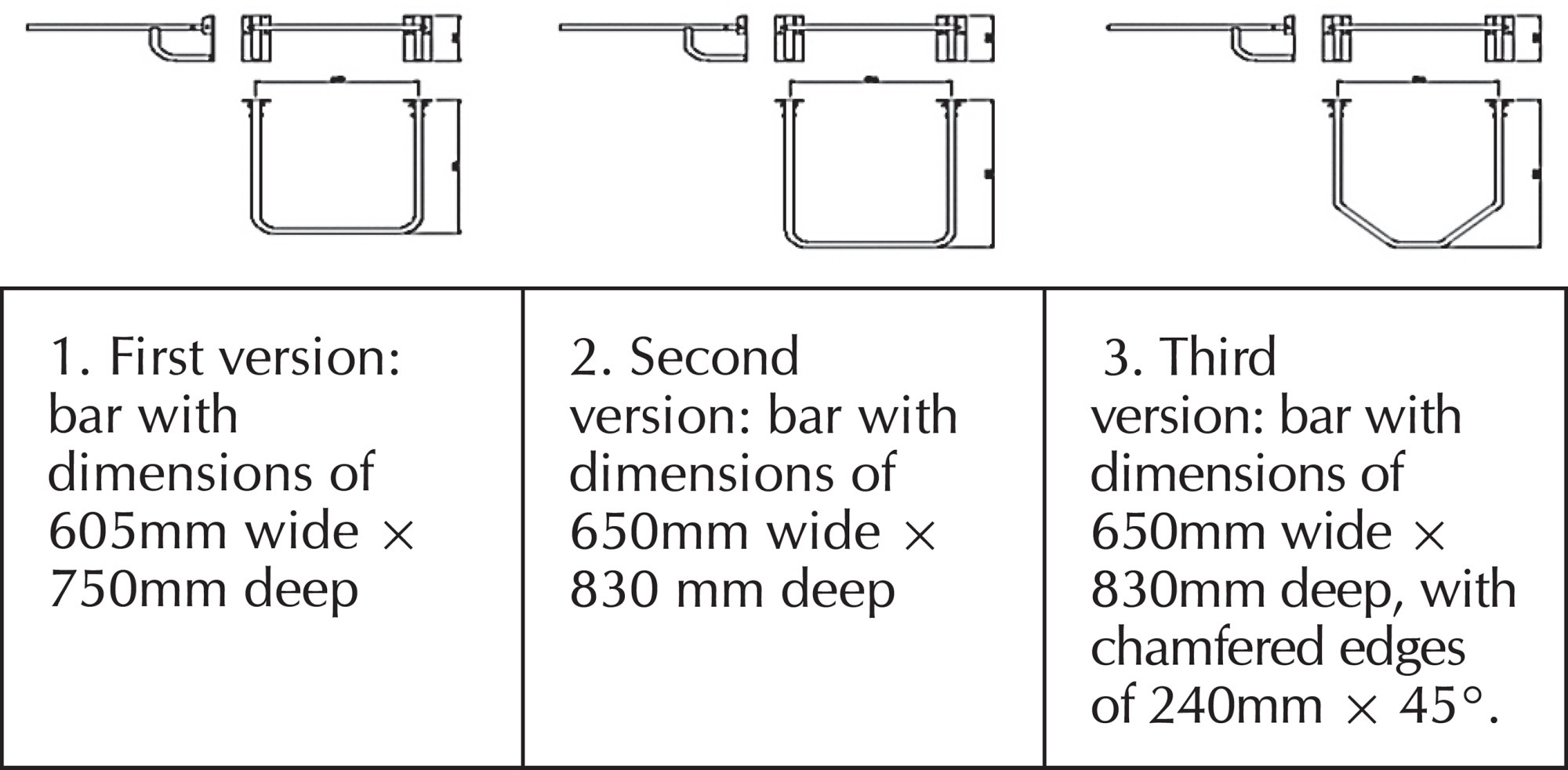
Search
Search in:
Nuvem de Tags
Enfermagem (930)Cuidados de Enfermagem (269)Atenção Primária à Saúde (239)Idoso (208)Educação em Enfermagem (151)Segurança do Paciente (150)Saúde Mental (145)Educação em Saúde (139)Estudos de Validação (131)Qualidade de Vida (104)Tecnologia Educacional (100)Promoção da Saúde (99)COVID-19 (91)Criança (91)Família (87)Enfermagem Pediátrica (86)Saúde do Trabalhador (86)Adolescente (85)Saúde Pública (82)Estudantes de Enfermagem (77)




